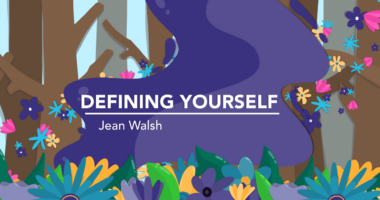Awareness Comes in Many Forms

I’m often entertained every time I search online for any “national day of” lists. I don’t know who is in charge of them, but they seem to change often, and no one source agrees on every recognition.
With May just around the corner, I am proud of a few things about the month. First and foremost, I love pizza, and according to one online source, the day before my birthday is National Pizza Party Day. Although I never need a reason to eat pizza, can there be a better reason than pizza having a pseudo-holiday?
I don’t think so, either.
Of course, my birthday is kind of a big deal, too. At least, it is for my mom and me.
May also serves as a significant anniversary month for me. I was diagnosed with Friedreich’s ataxia (FA) just a few days before my birthday in 2007. For the past 15 years, FA has played a significant part in shaping who I am and what I do. As challenging and frustrating as FA is, I am grateful for every experience, every lesson learned, and, more important, every person I’ve met because of FA.
In addition to many other things, May is also recognized as FA Awareness Month.
I’m always intrigued by the many forms that “awareness” can take. Before I knew much about FA or rare diseases, I often thought of “raising awareness” as an event that takes place once a year when attendees are asked to donate their money.
I’ve come to realize there is so much more to awareness. Overall, an awareness month aims to educate, inform, and compel people to get involved. And involvement spans a vast spectrum, from buying cookies at a bake sale one time to choosing to commit one’s career to research efforts for a specific disease or family of diseases.
Some people give money generously, while others volunteer their time to help organize events or apply stamps and seal envelopes. Some people write books, give speeches, or write columns like this to raise awareness.
Although every effort matters, the most significant element of awareness that stands out to me is the simple, mundane conversation with a stranger. When someone is willing to learn more about my disease, how it affects my life, and the current state of research, I am just as engaged in raising awareness as the next person.
That individual may not donate on behalf of my condition, and they may not be interested in pursuing a career researching treatments or a cure. They may never attend any fundraisers or volunteer their time. I don’t believe any of that is required.
With every conversation I have, every podcast episode I record, and every column I write, I believe someone’s perspective is shifting slightly, and someone’s understanding of humanity is being stretched. Ultimately, someone is becoming an all-around better human being because of their exposure to someone else’s pain and triumphs.
Even if it’s just one person and that person is me, I consider it a win. If I’m getting better, I can give better.
FA Awareness Month doesn’t require an organized event or a specific fundraising goal. If such opportunities are available to you, then by all means, jump in as much as possible and have fun. However, your kindness toward a stranger and simple interactions with others can be a pivotal moment of change for them. As we encounter FA Awareness Month, remember that we all play a part, and no person or event is more important than the other.
Note: Friedreich’s Ataxia News is strictly a news and information website about the disease. It does not provide medical advice, diagnosis, or treatment. This content is not intended to be a substitute for professional medical advice, diagnosis, or treatment. Always seek the advice of your physician or another qualified health provider with any questions you may have regarding a medical condition. Never disregard professional medical advice or delay in seeking it because of something you have read on this website. The opinions expressed in this column are not those of Friedreich’s Ataxia News or its parent company, BioNews, and are intended to spark discussion about issues pertaining to Friedreich’s ataxia.








Comments
GLORIA DIGGER
I believe l have this condition, l found out by chance through a physiotherapist. I’ve had so many falls in my life I recently fell and broke my hip I had the operation but I continue to fall. The medical profession could not identify why one day the physio said to me you could have F ataxia I had never heard of it he said it was something to do with nerves in the brain. I spoke to my Doctor Who asked me to spell it because she had never heard of it I’m doing research I realise I fit a lot of the criteria for this condition. Can you tell me who I approach to get tested for this condition please. As l say there is many aspects of the condition that affect me if you could point me in the direction of getting a diagnosis who I approach what therapists or medical people that I would need to see thank you for your time and looking forward to a response.
Gloria Digger